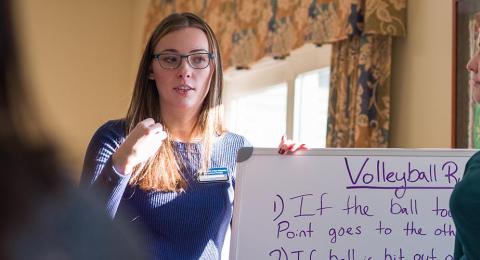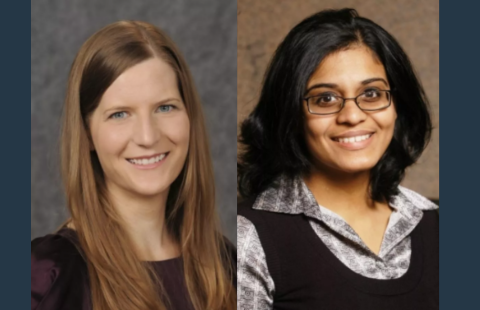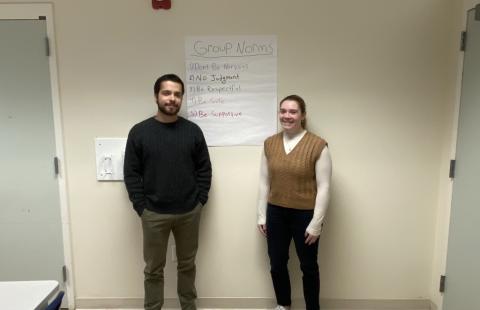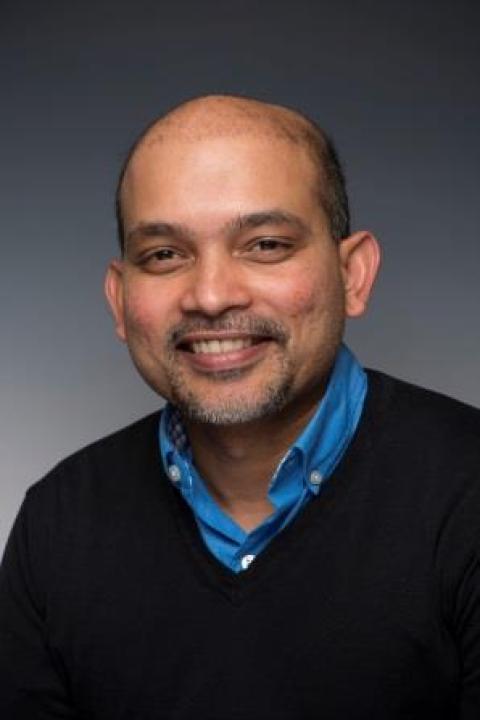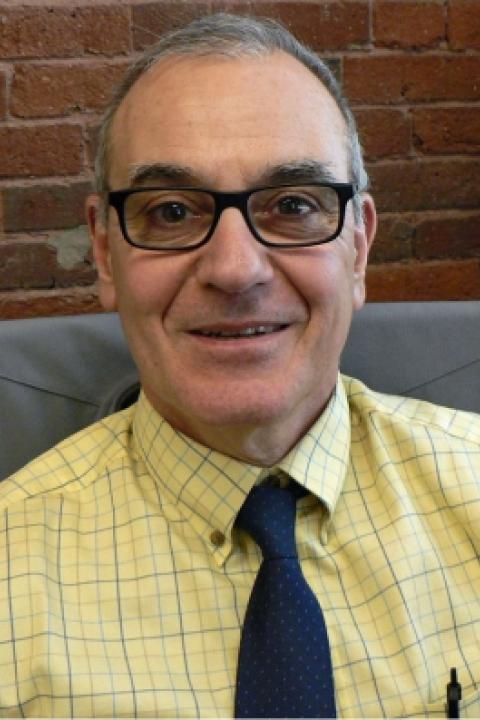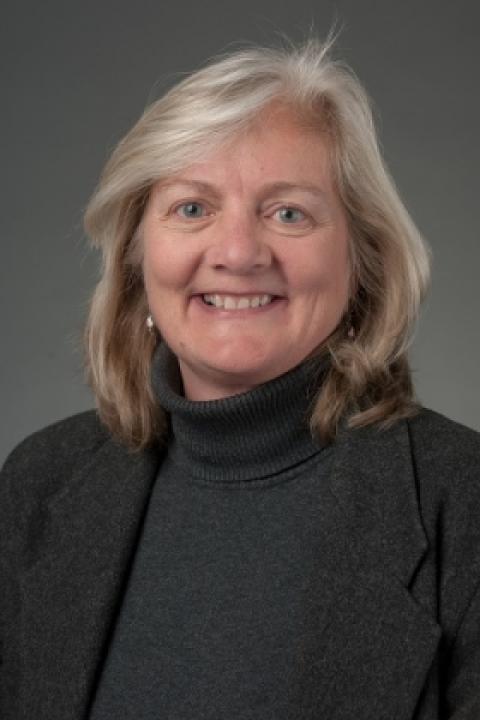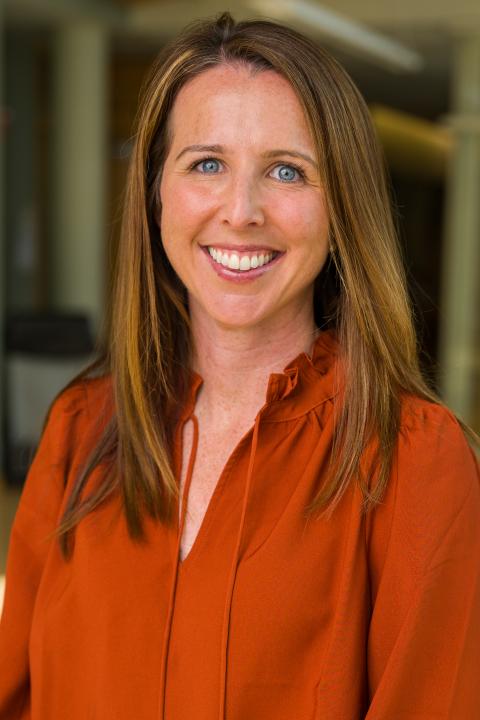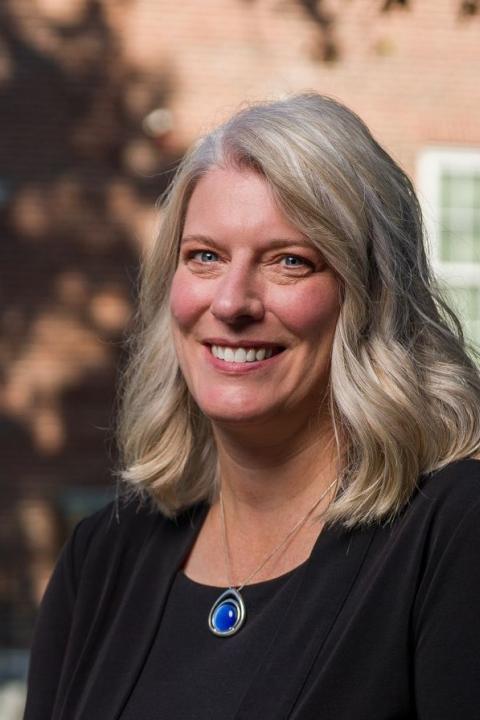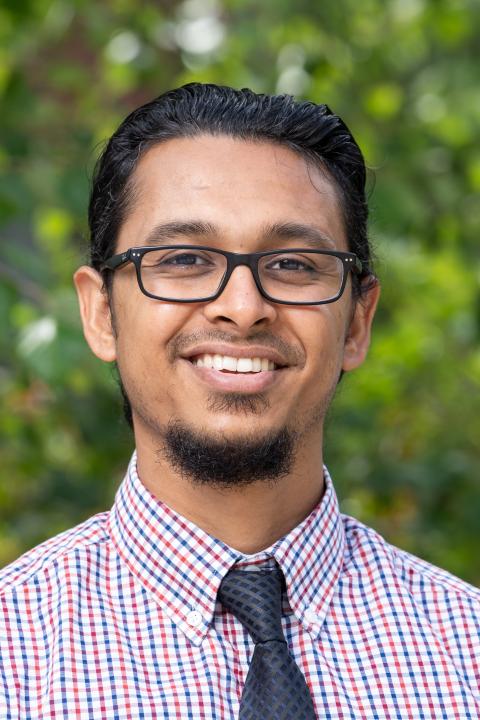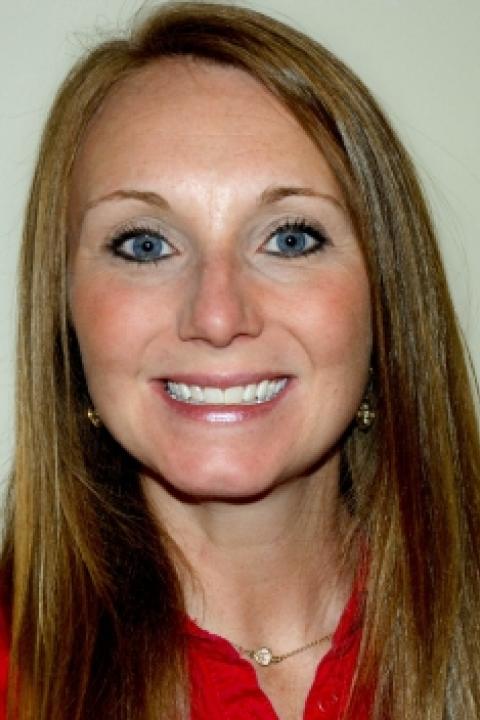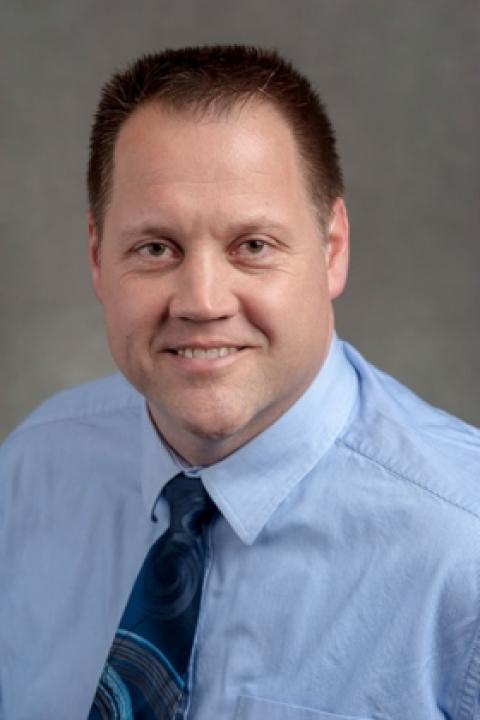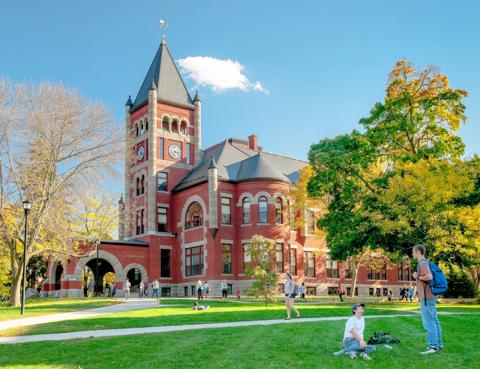WHY GET A MASTER’S DEGREE IN OCCUPATIONAL THERAPY?
A master’s degree in occupational therapy (OT) will prepare you for a career supporting people in the daily activities that are important to them. A fast-growing field, occupational therapy provides opportunities to work with people of all ages in a range of clinical settings. Our accredited master’s degree program emphasizes the understanding that engagement in everyday activities fulfills social needs and gives meaning to life, and is essential to the development, adaptation and well-being of individuals, societies and populations. You’ll learn to evaluate, provide intervention, and monitor the outcomes of patients facing a variety of illnesses, injuries and disabilities, such as autism, traumatic brain injury, stroke, substance abuse and musculoskeletal injuries.
WHY CHOOSE UNH’S OCCUPATIONAL THERAPY PROGRAM?
At UNH, you will gain valuable hands-on experience, integrating your knowledge and skills as you provide services with people in the community through academic courses and fieldwork. You will have opportunities to become involved with faculty research and scholarly projects, and you will also be supported by the educational, service and social opportunities of the Student Occupational Therapy Association on campus. After completing your degree, you will be eligible to sit for the National Board for Certification in Occupational Therapy certification exam to become a registered occupational therapist.
POTENTIAL CAREER AREAS
- Acute care
- Administration
- Early intervention programs
- Hand therapy clinics
- Hospitals
- In-patient rehabilitation centers
- Mental health and substance abuse programs
- Primary care settings
- School settings
- Skilled nursing facilities
From the CHHS Blog
Curriculum & Requirements
A master's degree in occupational therapy (OT) will prepare you for a career supporting people in the daily activities that are important to them. A fast-growing field, occupational therapy provides opportunities to work with people of all ages in a range of settings. Our accredited program emphasizes the understanding that engagement in everyday activities fulfills social needs and gives meaning to life, and is essential to the development, adaptation and well-being of individuals and populations. An entry level master’s degree in occupational therapy will prepare you to enter the profession with strong foundational skills in occupational therapy assessment and intervention in all areas of practice, with application of evidence to inform practice, and skills in leadership and advocacy, scholarly activities, and program development You will learn to evaluate, provide intervention, and monitor the outcomes of clients facing a variety of illnesses, injuries and disabilities such as autism, traumatic brain injury, stroke, substance abuse and musculoskeletal injuries. After completing your degree, you will be eligible to sit for the National Board for Certification in Occupational Therapy examination to become a registered occupational therapist.
The UNH Occupational Therapy Master's Program is accredited by the Accreditation Council for Occupational Therapy Education (ACOTE) of the American Occupational Therapy Association (AOTA), located at 7501 Wisconsin Ave. Suite 510E, Bethesda, MD 20814. Tel. 301- 652-6611, Website: www.acoteonline.org
Academic Standards and Policies
In order to be awarded a MS in Occupational Therapy from UNH, students must maintain an overall GPA of 3.0 and earn a minimum of B- in all required occupational therapy courses, and may not earn more than 8 credits of B- in OT courses (700 level or above). Students must also pass all competency (practical) exams as part of OT courses, pass all level I fieldwork requirements and receive a passing criterion score on the American Occupational Therapy Association Fieldwork Performance Evaluation for the Occupational Therapist in both 12-week Level II fieldwork experiences.
In addition to the academic standards noted above, students must meet professional behavioral standards, which are explained in detail in the OT Department Policy and Procedure Manual, provided to all occupational therapy students during their first semester.
Because curriculum review and revision is undertaken annually, occupational therapy faculty work closely with students during academic advising sessions and share information about any policy and requirement changes during registration periods as well as throughout the academic year. Students are expected to take an active role in verifying expectations and requirements and should check with their departmental advisers each September for updated policies and requirements. Program requirements and policies for retention in the major are posted annually in the OT Department Policy and Procedure Manual, which is available on the OT department’s organization site on MyCourses.
Students participate in a variety of off-campus and fieldwork experiences throughout the course of study and are covered with basic personal liability insurance through UNH for all practical components of the curriculum. Students are responsible for transportation to fieldwork sites and other off-campus learning experiences. Students are responsible for meeting the health and criminal record/background clearances established by their fieldwork sites and off-campus learning sites. Proof of immunization such as poliomyelitis, rubella, H1N1, and hepatitis B may also be required. For Level I and II fieldwork, health insurance and a physical examination, including a tuberculin test, are required. All fieldwork experiences are scheduled in centers approved by the Department of Occupational Therapy and with whom active Memoranda of Understanding with UNH exist.
After successfully completing all Level II fieldwork requirements and academic work, students are awarded a Master of Science Degree in Occupational Therapy. They are then eligible to sit for the National Board Certification Examination in Occupational Therapy (NBCOT). Consistent with NBCOT expectations, students must sit for the certification examination within three years of completion of coursework and fieldwork. A felony conviction may affect a graduate’s ability to sit for the NBCOT certification examination and/or obtain state licensure.
The program includes 2 years (5 semesters) of coursework, including Level II fieldwork experiences and one summer course. A Level I fieldwork is scheduled for 1 week, 40 hours, in January in the first year of the program. Most classes will be scheduled during weekdays during the day and into early evening. Some courses include experiential, off-campus learning in addition to the Level II fieldwork experiences which are two twelve-week full time experiences. Level II fieldwork experiences are planned collaboratively with the Academic Fieldwork Coordinator.
Sample Degree Plan
| First Year | ||
|---|---|---|
| Summer | Credits | |
| OT 841 | Human Occupation | 3 |
| Credits | 3 | |
| Fall | ||
| OT 810 | OT Practice and Professional Roles | 3 |
| OT 851 | Mind Body Systems/Neurologically-based Function and Dysfunction | 3 |
| OT 852 & 852L | Human Movement and Environmental Effects on Everyday Occupations and Human Movement and Environmental Effects on Everyday Occupations Lab | 4 |
| OT 881 | Introduction to Research and Evidence-Based Practice | 3 |
| OT 844 | Fieldwork and Professionalism - Level 1 | 1 |
| Credits | 14 | |
| January Term | ||
| OT 892 | Level I Fieldwork | 1 |
| Credits | 1 | |
| Spring | ||
| OT 863 & 863L & 863R | Occupational Therapy Intervention for Adults and Occupational Therapy Evaluation and Intervention for Adults - Lab and Adult Evaluation and Intervention Recitation | 4 |
| OT 882 | Research Methods and Application | 3 |
| OT 862 & 862L & 862R | OT Evaluation and Intervention for Children and OT Evaluation and Intervention for Children - Lab and OT Evaluation and Intervention for Children Recitation | 4 |
| Credits | 11 | |
| Second Year | ||
| Summer | ||
| OT 845 | Administration and Management for Occupational Therapy Practice | 3 |
| Credits | 3 | |
| Fall | ||
| OT 860 & 860L & 860R | Psychosocial Evaluation and Intervention and Psychosocial Evaluation and Intervention Lab and Psychosocial Evaluation & Intervention Recitation | 4 |
| OT 830 & 830L | Assistive Technology for Enhancing Occupational Performance and Assistive Technology for Enhancing Occupational Performance Lab | 4 |
| OT 871 & 871L | Enabling Participation in Community Groups and Enabling Participation in Community Groups Lab | 4 |
| OT 846 | Fieldwork and Professionalism-Level II | 1 |
| OT 893 | Special Topics (or graduate elective) | 3 |
| Credits | 16 | |
| Spring | ||
| OT 854 | Level II Fieldwork, I | 8 |
| OT 855 | Level II Fieldwork Discussion | 1 |
| OT 856 | Level II Fieldwork, II | 8 |
| Credits | 17 | |
| Total Credits | 65 | |
Degree Requirements
Students must complete at least 65 graduate-level credits, including 19 credits of fieldwork.
In order to be awarded a MS in Occupational Therapy from UNH, students must maintain an overall GPA of 3.0 and earn a minimum of B- in all required occupational therapy courses, and may not earn more than 8 credits of B- in OT courses (700 level or above). Students must also pass all competency (practical) exams as part of OT courses, pass all level I fieldwork requirements and receive a passing criterion score on the American Occupational Therapy Association Fieldwork Performance Evaluation for the Occupational Therapist in both 12-week Level II fieldwork experiences.
| Code | Title | Credits |
|---|---|---|
| Required Courses | ||
| OT 810 | OT Practice and Professional Roles | 3 |
| OT 830 & 830L | Assistive Technology for Enhancing Occupational Performance and Assistive Technology for Enhancing Occupational Performance Lab | 4 |
| OT 841 | Human Occupation | 3 |
| OT 844 | Fieldwork and Professionalism - Level 1 | 1 |
| OT 845 | Administration and Management for Occupational Therapy Practice | 3 |
| OT 846 | Fieldwork and Professionalism-Level II | 1 |
| OT 851 | Mind Body Systems/Neurologically-based Function and Dysfunction | 3 |
| OT 852 & 852L | Human Movement and Environmental Effects on Everyday Occupations and Human Movement and Environmental Effects on Everyday Occupations Lab | 4 |
| OT 854 | Level II Fieldwork, I | 8 |
| OT 855 | Level II Fieldwork Discussion | 1 |
| OT 856 | Level II Fieldwork, II | 8 |
| OT 860 & 860L & 860R | Psychosocial Evaluation and Intervention and Psychosocial Evaluation and Intervention Lab and Psychosocial Evaluation & Intervention Recitation | 4 |
| OT 862 & 862L & 862R | OT Evaluation and Intervention for Children and OT Evaluation and Intervention for Children - Lab and OT Evaluation and Intervention for Children Recitation | 4 |
| OT 863 & 863L & 863R | Occupational Therapy Intervention for Adults and Occupational Therapy Evaluation and Intervention for Adults - Lab and Adult Evaluation and Intervention Recitation | 4 |
| OT 871 & 871L | Enabling Participation in Community Groups and Enabling Participation in Community Groups Lab | 4 |
| OT 881 | Introduction to Research and Evidence-Based Practice | 3 |
| OT 882 | Research Methods and Application | 3 |
| OT 892 | Level I Fieldwork | 1 |
| Electives | ||
| Select 3 credits of graduate-level elective course(s) | 3 | |
| Total Credits | 65 | |
| Code | Title | Credits |
|---|---|---|
| Electives | ||
| OT 831 | Introduction to Assistive Technology Principles | 2 |
| OT 832 | Introduction to AT Design and Fabrication | 2 |
| OT 833 | Assistive Technology for Physical Access I: Electronic Technologies | 2 |
| OT 834 | Assistive Technology for Physical Access II: Mobility, Seating, and Transportation | 2 |
| OT 835 | Assistive Technology for Communication and Cognition | 2 |
| OT 836 | Assistive Technology for Vision and Hearing | 2 |
| OT 887 | Upper Extremity Rehabilitation and Orthotic Fabrication | 4 |
| OT 893 | Special Topics | 2-4 |
| OT 889 | Using iPads to Support Children with Disabilities | 2 |
| OT 890 | Occupational Therapy and Sensory Integration | 4 |
| OT 895 | Readings and Research in Occupational Therapy | 1-6 |
Program Learning Outcomes
Graduates of the Occupational Therapy M.S. program will:
- Demonstrate professional attitudes and behaviors in their work and interactions with clients, and others with whom they work. Our graduates will be dedicated to ethical, client-driven, OT practice, demonstrating integrity, honesty, compassion, and fairness. They will demonstrate respect for all clients with whom they work, which is grounded in an appreciation and consideration of individual priorities and life experience. Our graduates will be life-long learners, and innovative thinkers committed to ongoing professional development, and state-of-the-art, evidence-based practices. They will be able to collaborate well with other professionals as committed team players and have a solid understanding of the many roles and expertise of other professionals with whom they commonly work, along with clarity of their roles as occupational therapists. They will aspire to and be prepared to assume leadership roles in their professional lives as practitioners, researchers, advocates, and educators.
- Understand that engagement in meaningful occupations is essential to one’s health and well-being, and be prepared and committed to promote occupation-based occupational therapy practice. Our curriculum emphasizes the idea that engagement in everyday activities to fulfill social roles and give meaning to life is essential to the development, adaptation, and well being of individuals, societies and populations. Our graduates are ready and committed to apply occupation-based evaluation and intervention techniques, and to share and expand authentic occupational therapy practices.
- Be competent entry-level OT practitioners across diverse practice settings, skilled in the delivery occupation–based evaluation and intervention techniques. Our graduates will have developed critical thinking skills, and the capacity for high-level clinical reasoning preparing them to deliver client-centered, occupation-based, services in traditional and emerging practice areas. Graduates will know a variety of evaluation methods for understanding a person’s occupational history, abilities, challenges and goals. They will apply occupation-based intervention approaches, and assistive technologies to address the needs of individuals, and populations in traditional and emerging medical, education, and other community-based practice arenas.
- Apply evidence-based practices in their work. Our graduates will be skilled in identifying and interpreting relevant research and other data sources for delivering evidence-based, clinical services for promoting occupational participation and life satisfaction. Furthermore, they will have research skills for contributing to the body of knowledge that supports and advances occupational science, and occupational therapy.
- Demonstrate skills necessary to advance occupational justice so that all persons can fully participate in desired occupations. Our graduates will apply critical thinking skills, ethics, policy, and awareness of the context in which occupational therapy may be of benefit, to help advance the OT profession’s goal of meeting the occupational needs of individuals, populations and societies. Our graduates will also be able to generate new ideas to support and promote occupational justice for individuals, populations, and societies.
Professional Licensure/Certification Disclosures
The University of New Hampshire offers a number of academic programs designed to lead to professional licensure or certification in New Hampshire. However, completing a UNH degree/program does not guarantee professional licensure or certification. Eligibility may also depend on factors like years of work experience, professional examinations, passing a background check, and other criteria.
UNH does not guarantee that its professional licensure programs will satisfy the criteria of professional licensure boards in other states. Some states maintain different requirements for professional licensure or certification and requirements can change frequently. Federal regulations require the University to make public disclosure of certain information regarding professional licensure or certification programs, regardless of the modality the program is offered (i.e., in-person or online). The University provides guidance below but recommends students contact their state/territory licensing or certification board to ensure a program meets specific state/territory requirements.
Visit the Office of the Registrar's website for information about whether this program meets professional licensure requirements in your state.
Students hoping to apply to the Master of Science in Occupational Therapy at UNH should complete their application through the Occupational Therapy Centralized Application Service (OTCAS). To do so, follow this link, create a login, search for "University of New Hampshire" in the list of available schools, and click on the "+" sign on the left side of the screen to begin your application. When applying through OTCAS please use your UNH email address if you were a previous UNH student.
Deadlines
Applications must be completed by the following deadlines in order to be reviewed for admission:
- Fall: April 10
- Spring: N/A
- Summer: N/A
- Special: N/A
Application fee: $169 for the first program applicants apply to and $71 for each additional program.
*A limited number of fee waivers are provided to qualified applicants on a first-come, first-served basis. Learn more about fee waivers.
Campus: Durham
New England Regional: CT RI VT
Accelerated Masters Eligible: No
New Hampshire Residents
Students claiming in-state residency must also submit a Proof of Residence Form. This form is not required to complete your application, but you will need to submit it after you are offered admission, or you will not be able to register for classes.
Transcripts
OTCAS will require official transcripts to be uploaded to your portal.
Letters of recommendation: 3 required
Recommendation letters submitted by relatives or friends, as well as letters older than one year, will not be accepted.
Personal Statement/Essay Questions
Essays should integrate a discussion of the applicant’s experience working with people as a volunteer or employee, demonstration of a broad understanding of occupational therapy, and an explanation of personal interest and match for the profession.
Statements must be included with your submitted application.
Resume
Applicants who are not in the UNH B.S. in Occupational Therapy program must submit a one-page resume that details academic, work, and related experiences.
Important Notes
All applicants are encouraged to contact programs directly to discuss program-specific application questions.
Professional Master’s Degree Track (e.g., those without a B.S. Degree in Occupational Therapy from UNH): Please note that this is a competitive program with a limited number of openings available.
Accelerated Master's Program: For those applicants interested in doing the accelerated masters program in Occupational Therapy be aware that the graduate-level courses taken during a student's senior year can only count towards the Certificate in Assistive Technology, and not the MS in Occupational Therapy degree. All applicants are encouraged to contact programs directly to discuss program specific application questions.
International Applicants
Prospective international students are required to submit TOEFL, IELTS, or equivalent examination scores. English Language Exams may be waived if English is your first language. If you wish to request a waiver, then please visit our Test Scores webpage for more information.
Explore Program Details
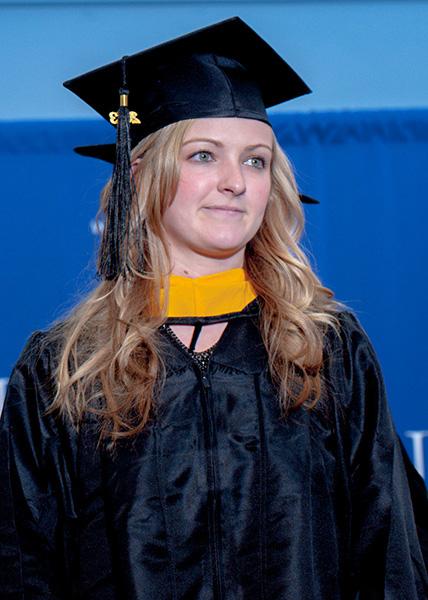
MS Occupational Therapy Prerequisites
- A completed BA or BS degree with a minimum overall grade point average of 3.00 or better
- Human Anatomy and Physiology I & II (2 courses, both with required labs)
- Neuroanatomy (lab preferred)
The Neuroanatomy course must include content related to the neural basis for movement and sensory functions. This includes an overview of the anatomical organization and function of the central nervous system, gross anatomy of both central and peripheral nervous system (including blood supply and meninges), sensory pathways, motor pathways, cranial nerves, and the spinal cord and spinal nerves. At the end of the course, students should have a basic working knowledge of the central nervous system in order to participate in the neurological examination of individuals with neurological impairments. - Clinical Kinesiology (lab preferred)
The clinical kinesiology course must include content related to the anatomy and physiology of the skeletal and muscular systems, sensory innervation of muscles, and basic biomechanics. - Statistics
- Abnormal Psychology
- Medical Terminology
- Human Development
* Coursework should include all stages of human development from birth through old age. This information may be covered in one lifespan course or multiple courses (i.e.: child development and adult development). - Research
Do all of the prerequisites need to be completed to apply?
Students who have completed all prerequisites will be reviewed more favorably, however, students may apply while still completing prerequisite courses. All prerequisites must be completed before beginning the program in the Fall semester.
Where can I take the prerequisites?
Prerequisite courses may be completed at any accredited college or university. Prerequisite course must be taken for college credit with a letter grade of a B- or better.
What are the prerequisites for the OT MS Program?
For students applying for the Summer 2023.
Mandatory prerequisites:
- Human Anatomy and Physiology with labs--2 courses
- Clinical Kinesiology (lab preferred but not required)
- Neuroanatomy (with lab)
- Statistics
- Human development course(s) covering the lifespan (may be done with two courses, one covering child development and one covering adult development)
- Abnormal Psychology
- Medical Terminology
Do all of the prerequisites need to be completed to apply?
Students who have completed all prerequisites will be reviewed more favorably, however, students may apply while still completing prerequisite courses. All prerequisites must be completed before beginning the program in the Summer semester.
How can I schedule a tour?
To register for a campus tour please visit admissions.
How do I apply to the MS Program?
Please apply through the graduate school online application.
How do I register for prerequisite courses at UNH?
To resister as a Non-degree student you must go through Continuing Education.
I have been out of school for many years and don't have access to recent professors to ask for references. What should I do?
We are looking for references who can speak to your ability to handle complex and dynamic information, your work ethic, your ability to handle stress, and your communication skills. While we prefer two references from recent professors, people who have supervised you in a professional, work/volunteer capacity are also acceptable.
What is the deadline for MS Applications?
**The Recommended Application Deadline for the Occupational Therapy MS Program is January 15th with a final deadline of March 1st.**
However, we encourage applications to be submitted to the graduate school by the end of December to ensure that all applications are complete in time for review. We also encourage applicants to periodically review their application status on the graduate school website, and to contact the graduate school if items are missing.
What is the topic for the admissions essay?
We are looking for strong writing skills and a clear presentation of your understanding of Occupational Therapy. We especially appreciate creative approaches to telling your story, and describing why you believe you would be a good fit for the profession.
What should I look for in a neuroanatomy course?
The Neuroanatomy course must be rich in content related to the neural basis for movement and sensory functions. Course content must incorporate an overview of the anatomical organization and function of the central nervous system, including blood supply and meninges; sensory pathways; motor pathways; cranial nerves; and spinal cord, including spinal nerves. Typical course objectives of an appropriate course should include wording about providing students with a basic working knowledge of the central nervous system and presenting the basic functional neuroanatomy required to understand and interpret the neurological examination of individuals with neurological impairments.
These courses can often be found at schools that offer medical professions education, including Occupational Therapy and/or Physical Therapy majors. UNH offers this course (KIN706/707) in the fall semester and in the early summer. There is one acceptable online course of which we are aware at San Jose State (Bio 109). Neuroscience courses typically do not meet this prerequisite.
Where can I take the prerequisites?
Prerequisite courses may be completed at any accredited college or university.
Students in the professional program (MS or BS/MS courses) must meet program requirements:
- A minimum GPA of 3.0 (overall) is required for continuation in the professional program.
- Grades B- or above in all courses. Students earning B- or lower in 9 or more credits will be dismissed from the professional program.
- Passing grades in all fieldwork components.
- Acceptable professional behavior identified on the OT Department Pillars of Professional Behaviors.
Students who do not meet these standards will be dismissed from the program. BS students may complete their BS degree by registering for sufficient elective credits to meet UNH degree requirements (128 credits). MS students failing to meet these requirements will be recommended for dismissal by the Graduate School.
Once students have completed all their academic and fieldwork requirements for entry-level practice, they prepare to take the NBCOT exam. This is one exam for which students cannot cram! But students certainly can prepare for it. The below links provide information about the exam’s format and content and guide you through the process of using your fieldwork experience as a study guide.
Prior to coming to campus, please review the USNH Computer Software and Hardware Recommendations as well as the IT Guide: Student Technology Checklist and and make sure you’ve completed all required steps.
From courses and programs to materials and websites, UNH is committed to creating accessible and inclusive campus. We understand that accessibility is not something that happens by accident. Accessibility is a community effort that requires proactive planning and thoughtful consideration of how we can incorporate accessibility into what we do and how we do it. Learn more about Accessibility at UNH here.
